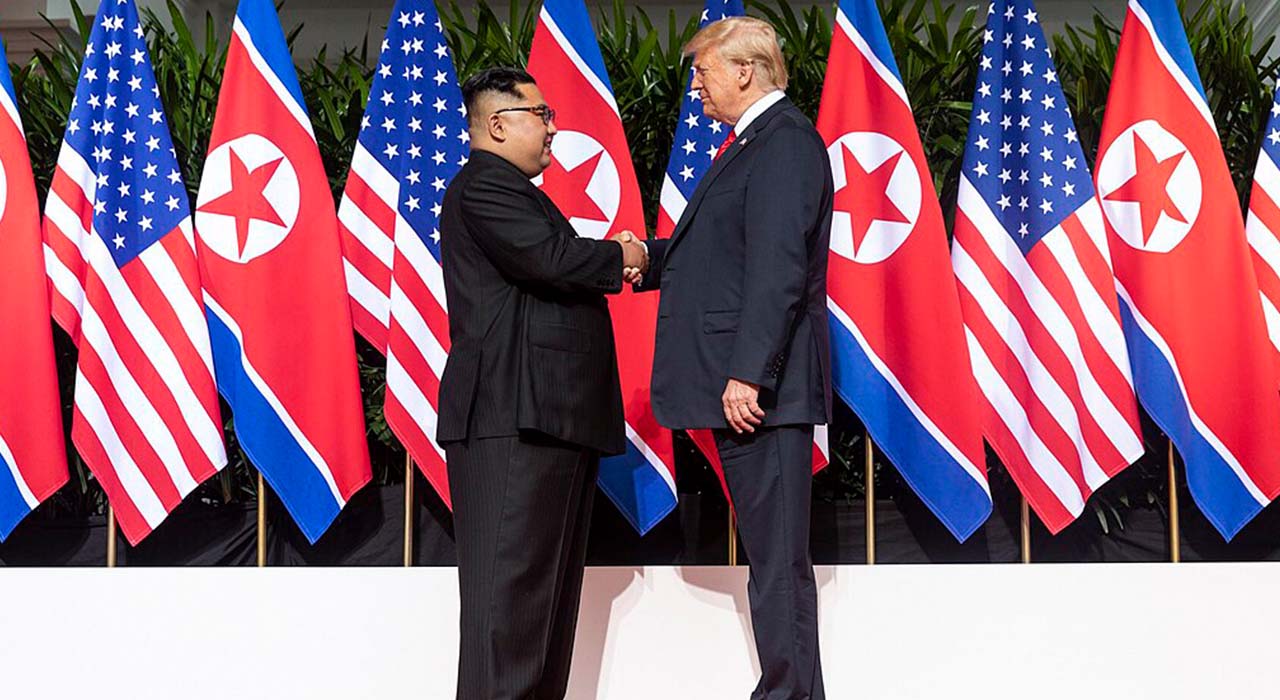14 November, 2024
The Trump 2.0 regime will be characterized by loyalty, pragmatism and transactional-ism as much as otherwise. These traits will manifest in the Korean peninsula and Indo-pacific, and likewise elsewhere. Smaller states should take note, such as Canada. Three points deserve diagnostic analysis.
Trump cites South Korea as a ‘money machine’ that should pay materially more to host the 28,500 troops comprising US Forces Korea. Without greater payback, the risk of US troop withdrawal increases, and with it, the vulnerability of South Korea to attack from North Korea (DPRK); President Kim Jong Un continues to state the defeat of South Korea (ROK) as DPRK’s strategic objective. Previously, Trump 1.0 assigned little importance to security and defence issues in the region. Will this reasoning now apply to the 50,000+ troops in US Forces Japan? Such argumentation is consistent with the reasoned pragmatism and transactional-ism surrounding the Trump regime’s reluctance to fund NATO without increased contributions from NATO allies, such as Canada.
This consistency draws from realpolitik more than political rhetoric. The risk of these financial measures’ coming into effect increases with the Republican President’s enjoying likeminded majorities in both the Senate and House of Representatives. Critically, US presidential power less subject to informed and mature oversight risks the larger model of global security and defence’ being reconstituted quickly, reactively, and poorly planned, all while threats of terrorism and Russian imperialism remain. Greater financial and operational stress on defence industrial bases will have to be borne by smaller states, such as Canada.
Diplomatically, multilateral relationships become at risk. Within the Indo-pacific alone, the US-Japan-Korea trilateral pact (JAROKUS), other longstanding relations with ROK following the 1951 UN ceasefire in Korea, the Australia-India-Japan-US Quadrilateral Security Dialogue, and the AUKUS trilateral security partnership are four of many defence and security arrangements at risk of fracturing with US’ withdrawal. They are the outputs of seasoned and practiced architects and engineers in diplomacy; their successors in Trump 2.0 may be less so. Senator Marco Rubio may be a credible candidate as Secretary of State (at the cost of one less seat in the GOP Senate). However, Rubio’s prospective colleague in US foreign affairs is Peter Hegseth, nominee of Secretary of Defense and a Fox News host lacking competence and senior practice in politics and defence. Yet, the nomination of Hegseth, who advances a more traditional military establishment, serves three aims. It affirms Trump 2.0’s priority for loyalists to his political agenda over skill, and demonstrates his rewarding faithful support to followers. Critically, it signals to the Pentagon that a military establishment which does not endorse Trump 2.0 agenda may receive less support in funding the US defence industrial base, concomitant with fewer international obligations in defence and security. Smaller states should take note of the follow-on impact, such as Canada.
What can the international order expect from the Korean Peninsula during Trump 2.0? Reportedly, DPRK has recently completed a second uranium enrichment site at Kangson (the first is at Yongbyon) in support of increasing its current arsenal of fifty nuclear weapons to one hundred forty in the mid-term and a forthcoming nuclear powered submarine fleet. DPRK’s eventually being formally recognized as a nuclear power will elevate its standing in the world order and provide leverage, perhaps in relief from sanctions. Trump 2.0 may or may not care but smaller states should take note of the follow-on impact, such as Canada.


